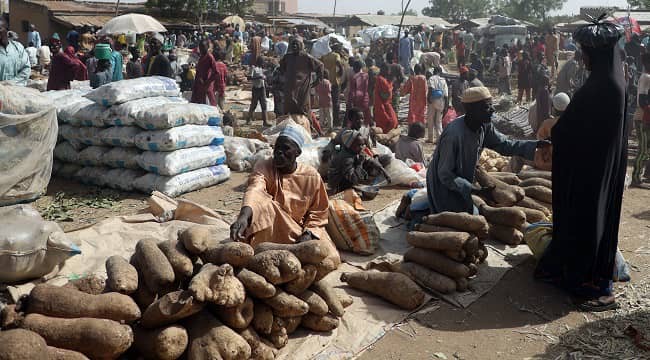According to the World Bank’s Nigeria Development Update report, more than 129 million Nigerians live in poverty at the moment.
As headline inflation climbs and millions of Nigerians go hungry, the study was issued Thursday in Abuja.
Over 129 million Nigerians, according to the global financial organisation, marked a significant increase from 40.1% in 2018 to 56% in 2024.
The World Bank report read, “With growth proving too slow to outpace inflation, poverty has risen sharply. Since 2018, the share of Nigerians living below the national poverty line16 is estimated to have risen sharply from 40.1 per cent to 56.0 per cent.
“Combined with population growth, this means that some 129 million Nigerians are living in poverty. This stark increase partly reflects Nigeria’s beleaguered growth record. Real GDP per capita has not recovered to the level it was at prior to the oil price-induced recession in 2016.
“The COVID-19 pandemic compounded this drop in economic activity. Moreover, growth is failing to outpace inflation: large increases in prices across almost all goods have diminished purchasing power.”
It added, “Multiple shocks in a context of high economic insecurity have deepened and broadened poverty, with over 115 million Nigerians estimated to have been poor in 2023. Since 2018/19, an additional nearly 35 million people have fallen into poverty, so that more than half of Nigerians (51.1 per cent of the population in 2023) are now estimated to live in poverty.”
The research claims that the number of Nigerians living in poverty increased from 115 million in 2023 to 129 million in 2024, indicating that 14 million people have fallen below the poverty line this year.
The Washington-based bank ascribed this increase to exogenous shocks, inflation, and inadequate economic management.
“Several shocks have contributed to this major increase and changing profile of the poor: the COVID-19 recession, natural disasters such as flooding, growing insecurity, the high cost of the demonetization policy in Q1 2023, high inflation, and low economic growth.
“Previous domestic policy missteps compounded the effects of the shocks, particularly rising inflation, eroding the purchasing power, especially of urban households, pushing many into poverty. The government is ramping up the cash transfer programs to support economically insecure households to help weather the crisis,” the report noted.
It also showed that although poverty was still a rural issue, it had greatly increased in urban areas, with 31.3% of urban residents now living below the poverty line, up from 18% in 2018.
The new World Bank report also noted, “Being employed, however, is no guarantee of being able to escape poverty. Many jobs are not productive and therefore remunerative enough to afford a life beyond poverty.”
It added, “Jobs hold the key to sharing the proceeds of growth. Since Nigeria has a young and growing population, the jobs that can harness the country’s potential ‘demographic dividend’ are needed now.”
Sienaert also dismissed claims that the institution seeks to keep Nigeria economically dependent.
“I’m in this position of having been the lead economist at the World Bank here in Nigeria on economic policy issues for two years now, and I just want to tell you that I’ve not seen any conspiracy within the World Bank or otherwise to keep Nigeria down,” Sienaert said.
He said that because to changes including the elimination of fuel and foreign exchange subsidies, Nigeria’s budget deficit decreased from 6.2% of GDP in 2022 to 4.4% in the first half of 2023.
